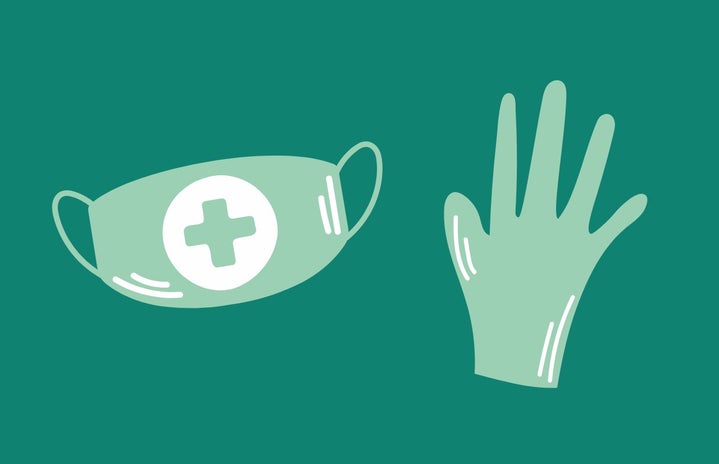We’re in a scary time right now and scary times make people do crazy things. We’re all seeing things that seem completely irrational to us, especially in the middle of a pandemic. But why are they doing these things? Why are people hoarding toilet paper and refusing to obey orders to stay at home?
Social psychology might give us some insight into why people are responding in these ways. Social psychology is the study of people’s thoughts and behaviors based on the real or implied presence of others.
Understanding our behavior during the pandemic starts with understanding some of the essential theses of social psychology. First, situational forces play a bigger role in initiating actions than we tend to think they do. Second, thoughts and behaviors that deal with social situations don’t usually follow any rational or logical theories. Third, an individual’s perceptions of a situation are more important than the true factors of the situation. Fourth, thoughts and behaviors in social situations are due to both the individual and the situation.
So how do these help explain our actions?
First off, our behavior seems irrational because it probably is irrational. We are in a very uncertain situation, which causes us a lot of discomfort. We’re out of our typical routines and we aren’t sure when we’ll get those routines back, if ever. Uncertainty causes our stress response to freak out, causing a lot of anxiety as our brain tries to come up with every possible future scenario.
Uncertainty also diminishes our sense of control. Having a sense of control over our lives is a major factor in maintaining good mental health, so when we lose control, we try to gain it back. As we have seen, this can lead to people hoarding supplies like toilet paper because it is an easy target – cheap and seemingly necessary.
This anxiety is closely related to fear, which triggers our primitive instinct or “lizard brain.” This primitive brain is not very rational, yet it convinces us to buy an extra roll of toilet paper anyway. In addition, we learn to act in certain ways based on how we observe others acting. When others start buying a lot of toilet paper, then it’s likely we will too.
Another common irrational behavior we have been observing is a refusal to abide by stay-at-home orders. Turns out this has a psychological basis as well due to a concept called in-group biases. In-group biases is the tendency to show favoritism to people we are similar to or in a “group” with, consciously or unconsciously. That group can be based on a variety of factors like your friends, other fans of the same sports team, or others in your political party.
When it comes to coronavirus, people don’t see themselves (or their group) at fault. And if you aren’t at fault, then why should you change your behavior? The people responsible should change theirs instead because it’s not like you did anything to cause this. The problem with this thinking is that no single person or group is at fault for this pandemic. A pandemic is a public health issue, which means that it is an issue that risks the health of the ENTIRE community, including you. That means we all are responsible for overcoming the issue because we are all affected by it. So that means you better stay home.
Overconfidence is another major factor when it comes to obeying stay-at-home orders. We underestimate the probability of us contracting or transmitting the virus, so we go about our business as usual. For us younger generation, we may be overconfident in our ability to combat the disease, not taking into account the fact that we may pass the virus to an elderly relative that can’t combat the disease.
Leaders during the pandemic are subject to overconfidence as well because it greatly affects decision making. We are often too confident that our solutions and plans are the best possible, neglecting to see possible holes or flaws. It also makes us subject to the sunk-cost-fallacy, where we refuse to admit that our plan is not working and keep going with it anyway.
Finally, no conversation about pandemics and psychology would be complete without talking about the psychological effects of a pandemic. First, social isolation can be extremely lonely, even with the technology we have today. Many of us have been restricted from doing things that give us enjoyment, like hanging out with friends or going out to eat. This can lead to little motivation (why get out of bed if there is nothing to do I enjoy?) and become a risk for depression.
Plus, the longer this goes on, the more likely it is to experience learned helplessness. Learned helplessness is where we learn to stop trying to overcome stressors or challenging situations because we believe that nothing we do will improve our situation. This too can lead to depression and a lack of motivation that could end up affecting people well after this pandemic is over.
Though there are many other reasons that we act the way we do, these are some of the biggest ones. In essence, don’t underestimate the power of the situation. When you see someone making an irrational behavior, think of the situational factors that may have led them there. They may not be an irrational person, but uncertainty and a lack of control can make a lot of people do crazy things.
Most importantly, please check on your friends. Even if they say they are okay, they might not be. Let them know you are there for them even while miles apart – I promise you will both be better off for it.


